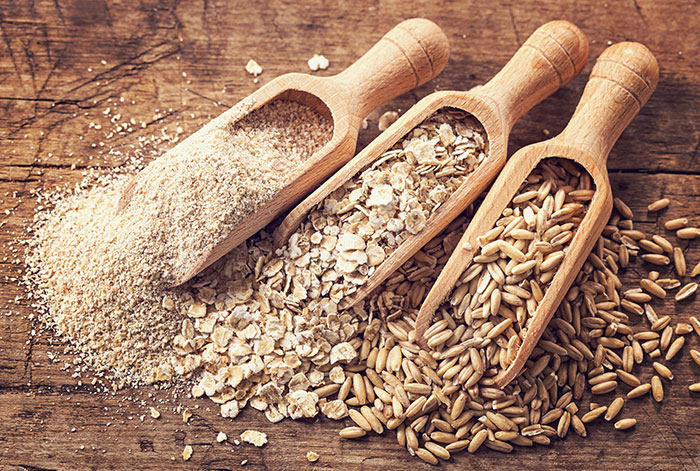Researchers in Denmark conducted a study this month proposing that whole cereal grains like rye, oats, and wheat have the potential to lower an individual's risk of developing diabetes. Out of the 55,000 participants in the study, a little under 13% developed diabetes. Those who ate the highest amount of whole grains (50g per day) ended up having the lowest risk.
So, are our friends across the pond right? Can we reap the same benefits from whole grains here in the United States?
Hate to break it to you, but the answer is probably no. Here’s why.
1. Whole grains with fiber and nutrients are a healthier option

No, our Danish brothers and sisters weren’t lying. Whole grains are generally a healthier option than refined grains because whole grains like oats, brown rice, quinoa, wheat, and rye have avoided the processing that strips away the fiber and nutrients. As a result, you’re able to slowly digest these foods, and your body can better regulate your blood sugar after a meal. The fiber in these grains also helps rid your body of toxins while also feeding the healthy bacteria living in your gut. Once a grain is processed and refined, your blood sugar spikes, and the lack of nutrients helps feed dangerous gut bacteria.
2. Whole grains can still mean too many carbs
Ok, so if whole grains are a healthier option, then what’s the problem? It is true; some diabetics might benefit from eating whole grains; however, this isn’t the case for everyone.
When it comes to diets in any treatment plan, dietary needs are highly unique and dependent upon the individual.
Many diabetics can no longer break down whole grains and use the carbs effectively. The American Diabetes Association even admits that low-carb diets, which would nix grains altogether, might be a smarter option for those with diabetes.
3. Whole grains can make type 2 diabetes worse
One thing about type 2 diabetes that may not be common knowledge is that many individuals with type 2 diabetes have an underlying autoimmunity that is to blame for their disease progression.
Research has shown that many diabetics either suffer from an autoimmune condition that damages pancreatic cells or have an inflammatory response to insulin itself. Even individuals who are more prone to diabetes because of obesity experience a higher prevalence of autoimmunity.
Are whole grains at fault here? Of course not. But autoimmunity means that an individual’s intestines are damaged and left susceptible to leaky gut syndrome. Grains can worsen gut damage, which can ultimately exacerbate already frustrating symptoms. The culprits in the grains are called lectins. These sneaky offenders can irritate the intestinal mucosal lining. Another suspect is the toxic pesticide residue that makes its way into our bodies via grain. The Environmental Working Group reports that almost 90% of cereal grain grown conventionally contains glyphosate (Roundup), and around 30% of grains grown organically are also exposed to this toxic chemical.
But guess where these pesticides aren’t so popular? You got it--Denmark. So this could be one of the reasons Americans are not seeing the same health benefits from whole grains as the individuals in the study.

The Bottom Line
The bottom line is this: If you have diabetes, you’ve probably tried most of the fad diets or headlining approaches to nutrition that promise lasting results. As I said earlier, the problem is that when it comes to your nutrition plan and healing, your needs are going to be different than the next person. Our clinic aims to conduct state-of-the-art testing that can pinpoint your exact dietary needs so that we can design a treatment plan around you--not the disease itself. You can keep looking on the Internet for easy at-home diets that assume every person is the same, or you can come in for a consultation and consult a functional medicine practitioner who will take into account your unique experience as an individual.
The choice is yours...but if we can learn anything from grains, it’s that you reap what you sow.